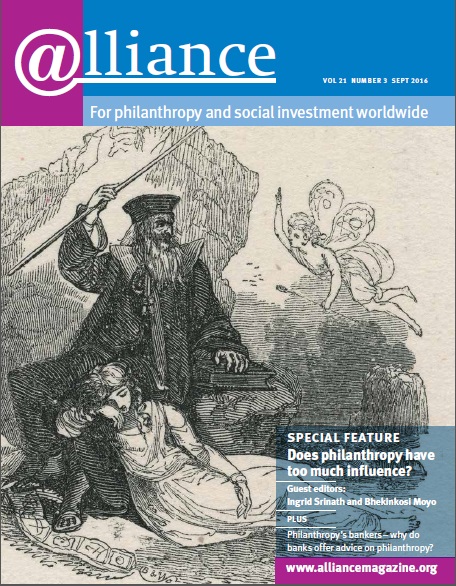Turkey has a long history of philanthropy. Along with many other developments in the social and economic arena, however, the role of philanthropy and foundations has changed in Turkey since the days of the Ottoman Empire, when foundations played a major role in supporting a wide range of social institutions that provided for basic social needs. Today, Turkish foundations are taking a more active role in dealing with a variety of social challenges through different programmes and policy interventions. Faced with the complex challenges of our day, the philanthropic sector in Turkey is undertaking new responsibilities and discovering new ways to support social change.
As of 2016, there are 5,075 new foundations (ie established after the Republic) operating in Turkey. These foundations are active mainly in the areas of education, solidarity and health; a limited number operate in the field of law, human rights and democracy. A similar trend is also visible in the giving behaviour of philanthropists: it is quite common to see philanthropists establish foundations, which operate in a range of areas. Philanthropic giving, however, mostly involves awarding scholarships, establishing schools, building hospitals and providing social services. Grantmaking meanwhile is still a new and often neglected practice for Turkish foundations and philanthropic institutions at large. Despite the traditional character of the sector, existing and emerging philanthropists are looking for new ways to scale up their operations, adopt innovative approaches, promote systemic change and achieve greater social impact.
Although philanthropy is deeply rooted in Turkish history and tradition, policymaking has never been one of its main concerns. The underlying reason for this lack of interest is the perceived role of the state as the provider of social services, and the reluctance of philanthropists to challenge the role that the state imposes on them. In other words, philanthropy has been seen and accepted as complementary to the state’s work in providing social services. In reality the philanthropy sector has the means and capacity to help develop new practices and policies, promote multi-sectoral partnerships and take an active role in influencing policymaking in the country. It is important to note that the legal framework and political environment of the country have also contributed to this understanding of philanthropy’s role vis-à-vis the state.
‘In Turkey, there are no mechanisms for including foundations and associations in policymaking processes. It could be argued that the lack of these mechanisms contributes to the widespread perception of foundations as service providers. The legal framework also allows no room for philanthropic institutions to influence policy.’
In Turkey, there are no mechanisms for including foundations and associations in policymaking processes. It could be argued that the lack of these mechanisms contributes to the widespread perception of foundations as service providers. The legal framework also allows no room for philanthropic institutions to influence policy. Furthermore, existing legislation on foundations does not allow them to have grantmaking as their sole activity, which in the long run makes it difficult for them to give financial support to civil society organizations that are oriented towards policy and advocacy.
Lastly, the political turmoil in the country is causing all actors – including the philanthropic sector – to avoid risk taking. As an example, Turkey has received more than 3 million Syrian refugees in the last few years. While state institutions, in cooperation with international agencies such as UNHCR, have taken a major role in working with refugees, Turkish philanthropy has been reluctant to do so. This reluctance is partly due to the fact that the issue is highly political and it is considered risky to act at this time of political uncertainty.
In an environment where political and social problems are becoming more complex and intertwined than ever, how will Turkish philanthropy react and contribute to social change? In the last few years we have seen pressing social needs give rise to new ways of engagement and participation. This is true for the philanthropy sector, too. That is why, despite the unfavourable conditions, new initiatives – with a group of new philanthropists and activists at their core – are emerging. I believe this changing environment will also cause philanthropic institutions to ask questions about their own activity and to change their ways by bringing traditional and modern approaches together to create solutions.
Liana Varon is deputy secretary general, Third Sector Foundation of Turkey (TUSEV). Email liana@tusev.org.tr







Comments (0)